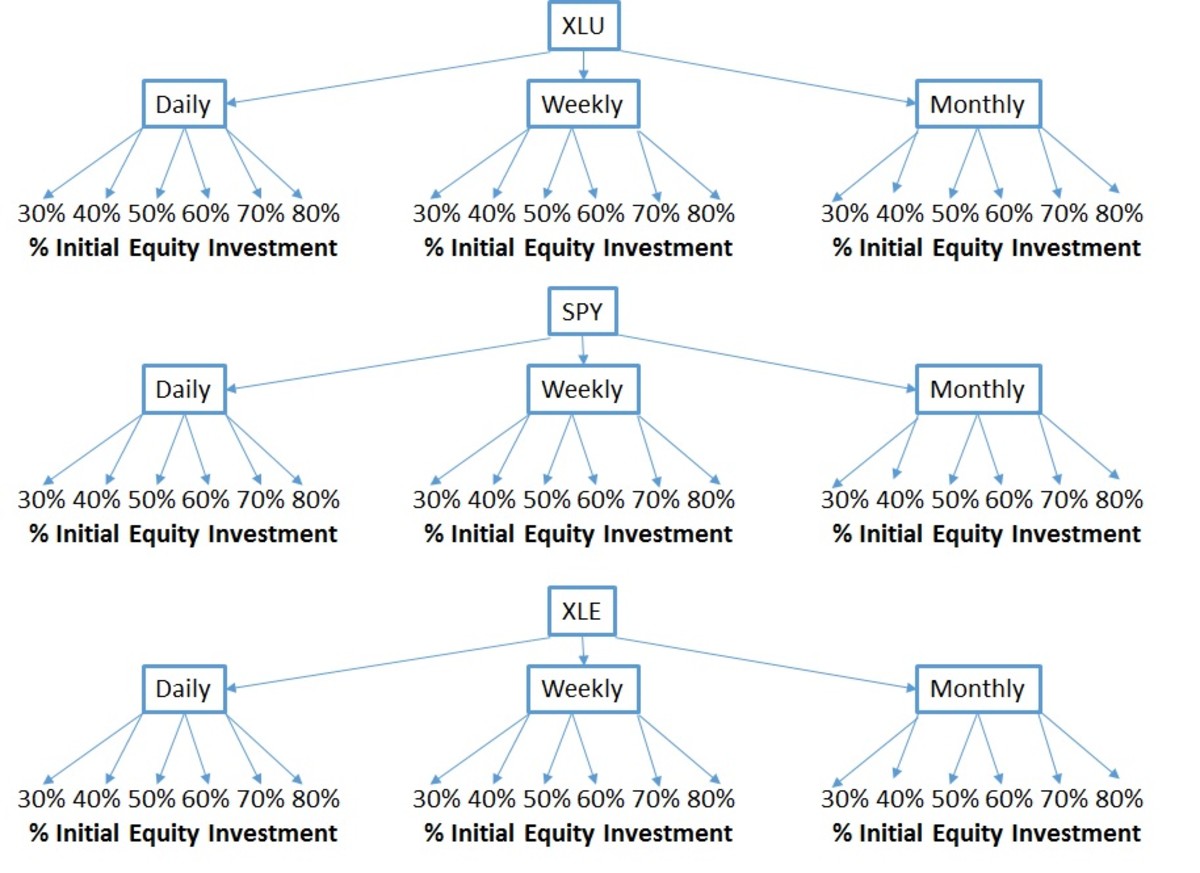Tax Efficient Investing

Controlling your tax liability
There are many misconceptions when it comes to building a tax efficient investment portfolio. When investing ouside of a tax sheltered retirement account, tax efficient investing is not exclusively about what types of investments you purchase. It is also important how you utilize them.
When looking for tax efficiency the first thing that comes to mind, especially for those in relatively high tax brackets is the municipal bond market. Municipal bonds or bond funds can pay you an income free from Federal, State, local and even potentially AMT taxation. This is true whether or not you purchase these issues individually or through a bond fund. In general, fixed income funds are preferable for the average investor primarily for the reason explained in our analysis of bonds vs bonds funds linked to here. http://landmarkwealth.hubpages.com/hub/Bonds-or-Bond-Funds
However, whether you are discussing fixed income or equity related investments there are some other important considerations that far too few investors address correctly. The most important of which is tax loss harvesting. Imagine that you have an investment portfolio comprised of 50% in stock funds & 50% in fixed income investments. Whether it was 2002 or 2008 it is a fair statement to assume that most equity investments you may have held went down in value. Some investors will certainly behave irrationally and panic at an inopportune time. Yet the innate reaction of most investors whom are long term and fairly disciplined is to simply say "I will wait unit the market rebounds". While that approach is correct, it is only partially correct.
Putting aside the importance of constantly rebalancing a portfolios allocation through market volatility, you must also examine closely cost basis if you are investing in a non-retirement account. Let’s assume for the sake of simplicity that you owned a large cap stock fund. The fund performance in a market correction caused it to decline in value by 15%. Your $100,000.00 investment is now worth $85,000.00. Considering the mutual funds universe is made up of many thousands of funds, is it fair to say that you can find a similar fund in terms of strategy and holdings ??? The answer is absolutely. So what if you simply sold fund A to buy Fund B with a virtually identical set of holdings. You would have simply captured a $15,000.00 tax loss to be used elsewhere. As the market begins to rebound, both fund A and B are likely to appreciate accordingly. During this period of equity declines perhaps as interest rates drop you needed to take some profits from a bond fund. Those profits are now at least partially if not completely tax free. That unused loss can be a $3,000.00 annual tax deduction until exhausted. Otherwise the loss can continue to be used against future gains elsewhere in your portfolio. A function of rebalancing an investment plan is to sell some of the asset that went up and add more to the asset that declined. Yet you can add more to the asset that declined, but simply under a technically different security and capture the tax benefit.
The unused portion of tax losses can be carried forward to future years against future gains on not only your investment portfolio, but also against other assets. As an example, should you sell a real estate property and produce a capital gain you can use the losses harvested in your portfolio against the real estate gain.
This strategy also does not impact the “wash sale” rules, as you were technically buying a different investment than you were purchasing. For those readers who do not know, wash sales rules disallow the use of a tax loss if you purchase the same security, or a derivative of such a security back in less than 30 days. So you cannot simply sell a fund and then re-buy it. It must be a different investment. Yet the fact that the underlying holdings of two different investments are greatly similar has no bearing for tax purposes.
Can I simply just wait the 30 days ??? Absolutely you can. Yet a great deal can happen in 30 days that may or may not work in your favor. If you goal is to avoid timing financial markets and maintain your asset allocation strategy as we believe it should be, then tax loss harvesting becomes a vital approach.
When investing in individual securities such as individual stocks and bonds, there is a misconception that they are more tax efficient than mutual fund investing. The logic is that mutual funds can pay sizeable capital gain distributions throughout the year which is beyond the investor’s control. While there is merit to that statement, it is out-weighed by the approach explained above. Imagine yet again that you bought stock in Microsoft. Should you see a similar short term price decline, you have no such tax loss harvesting options. There is no other Microsoft that is identical. You would be forced to leave the position out of your allocation for the full thirty days, hence potentially missing the entire rebound in price. Yet it is highly likely that you can find a group of funds with a greatly similar set of holdings.
In one such example, I once had a client whom had the misfortune to begin investing in Oct 2007. While working with this client we were able to weather the storm fairly well, yet he still had in the neighborhood of a 20% portfolio decline at his worst point. The following years, as most of people are aware were quite volatile for investors globally. Yet by the end of 2009/early 2010, his portfolio, which began with about 1 million in total value, was slightly positive. The positive rebound was more the result of proper reallocation during volatility. Yet on the books, we were able to tax loss harvest over $300,000.00 in recorded losses. By 2011, this client wished to sell a second home that was going to produce a capital gain for himself and his wife in the neighborhood of $100,000.00. As a result of our actions it was a tax free sale.
These same tax efficient methods can and should be utilized when investing in the ETF marketplace. However, ETF’s add even greater tax efficiency through their low turnover ratios. The result of their reduced trading produces far less in the way of the dreaded capital gain distributions. Due to the massive expansion in the ETF space, you can easily follow this same approach by replacing one of the large cap indices for another with a similiar correlation.
Tax efficiency in an investment portfolio is the result of actively managing your holdings according to not only your allocation and investment selection, but also controlling the reportable cost basis and taking advantage of economic downturns by using them to your personal tax advantage. This takes time, discipline and a great deal of patience.
Suggested Reading
- Life Insurance: What You Need to Know
The question of what type of life insurance is most suitable, typically has to do with factors pertaining to an individuals net worth. The first thing one should keep in mind in all forms of insurance is that insurance is a contract of indemnity.... - Should I Pay off My Mortgage Early ???
For many Americans, the ability to pay down their mortgage sooner is simply not realistic. However in some cases it is quite possible. The Question of whether or not you should accelerate mortgage payments or use liquid cash to eliminate the... - The Impact of Retirement Distributions in Volatile M...
Over the last fifteen years in the financial planning field, the most commonly expressed concern I have heard from a retiree/pending retiree has been…Will I run out of money ??? When examining this question there are many variables to be concerned... - Bonds vs Bond Funds ???
While over the years the community of investment professionals nearly universally agree that most every client should own some form and percentage of fixed income as part of their asset allocation strategy…Over the years there has been an ongoing... - The Case for Alternative Investment Strategies
One of the lessons of 2008, and even the more recent market volatility is that portfolio management has become more dynamic. Traditional asset allocation models of equities, fixed income, and cash equivalents may not be sufficient for more growth... - The Importance of Asset Allocation
When building and investment strategy we often hear the term “diversification” Yet and equally important concept is “Asset Allocation” It has been shown via numerous studies that the proper allocation can account for better than 90% of long... - What should your Financial Advisor ask you ???
Often we read articles & commentary about what to ask your financial advisor. But what should your financial advisor be asking you. Often times that alone can tell you whether or not you are engaged in a financial advisory relationship that is in - Understanding Annuities
What is an annuity ??? Annuities can generally be summarized as two basic types of insurance contracts. They are either immediate or deferred annuities. Over the years these two types of contracts have been expanded to encompass many different... - ETF's vs Closed-End Funds ???
The difference between a traditional exchange traded fund (ETF) and an actively managed closed end fund are several. However, there are certain basic features that one should understand before utilizing these solutions as investment options. The... - Passive vs Active Management…The Case for ETF’s
There has been an ongoing debate for decades about the benefits of actively managed mutual funds versus their passive counterparts. Those counterparts would be the exchange traded fund market (ETF’s) as well as traditional index funds. Those in... - Should I Pay off My Mortgage Early ???
For many Americans, the ability to pay down their mortgage sooner is simply not realistic. However in some cases it is quite possible. The Question of whether or not you should accelerate mortgage payments or use liquid cash to eliminate the... - The Impact of Retirement Distributions in Volatile M...
Over the last fifteen years in the financial planning field, the most commonly expressed concern I have heard from a retiree/pending retiree has been…Will I run out of money ??? When examining this question there are many variables to be concerned... - Bonds vs Bond Funds ???
While over the years the community of investment professionals nearly universally agree that most every client should own some form and percentage of fixed income as part of their asset allocation strategy…Over the years there has been an ongoing... - Passive vs Active Management…The Case for ETF’s
There has been an ongoing debate for decades about the benefits of actively managed mutual funds versus their passive counterparts. Those counterparts would be the exchange traded fund market (ETF’s) as well as traditional index funds. Those in... - The Case for Alternative Investment Strategies
One of the lessons of 2008, and even the more recent market volatility is that portfolio management has become more dynamic. Traditional asset allocation models of equities, fixed income, and cash equivalents may not be sufficient for more growth... - The Importance of Asset Allocation
When building and investment strategy we often hear the term “diversification” Yet and equally important concept is “Asset Allocation” It has been shown via numerous studies that the proper allocation can account for better than 90% of long... - What should your Financial Advisor ask you ???
Often we read articles & commentary about what to ask your financial advisor. But what should your financial advisor be asking you. Often times that alone can tell you whether or not you are engaged in a financial advisory relationship that is in - Understanding Annuities
What is an annuity ??? Annuities can generally be summarized as two basic types of insurance contracts. They are either immediate or deferred annuities. Over the years these two types of contracts have been expanded to encompass many different... - Should You Buy A Long Term Care Insurance Policy ???
The topic of Long Term Care insurance is somewhat controversial. More so than most other solutions, the debate as to whether you should own such coverage is somewhat questionable. Like most solutions, this should be addressed on a case by case... - Life Insurance: What You Need to Know
The question of what type of life insurance is most suitable, typically has to do with factors pertaining to an individuals net worth. The first thing one should keep in mind in all forms of insurance is that insurance is a contract of indemnity.... - Do You Need An Umbrella Policy ???
At times it can seem terribly overwhelming for many of us when it comes to purchasing insurance. There are so many policies to consider. We must decide on health, life, long term/short term disability, long term care, homeowners and auto insurance... - Life Insurance: What You Need to Know
The question of what type of life insurance is most suitable, typically has to do with factors pertaining to an individuals net worth. The first thing one should keep in mind in all forms of insurance is that insurance is a contract of indemnity.... - Should I Pay off My Mortgage Early ???
For many Americans, the ability to pay down their mortgage sooner is simply not realistic. However in some cases it is quite possible. The Question of whether or not you should accelerate mortgage payments or use liquid cash to eliminate the... - The Impact of Retirement Distributions in Volatile M...
Over the last fifteen years in the financial planning field, the most commonly expressed concern I have heard from a retiree/pending retiree has been…Will I run out of money ??? When examining this question there are many variables to be concerned... - Bonds vs Bond Funds ???
While over the years the community of investment professionals nearly universally agree that most every client should own some form and percentage of fixed income as part of their asset allocation strategy…Over the years there has been an ongoing... - Passive vs Active Management…The Case for ETF’s
There has been an ongoing debate for decades about the benefits of actively managed mutual funds versus their passive counterparts. Those counterparts would be the exchange traded fund market (ETF’s) as well as traditional index funds. Those in... - The Case for Alternative Investment Strategies
One of the lessons of 2008, and even the more recent market volatility is that portfolio management has become more dynamic. Traditional asset allocation models of equities, fixed income, and cash equivalents may not be sufficient for more growth... - The Importance of Asset Allocation
When building and investment strategy we often hear the term “diversification” Yet and equally important concept is “Asset Allocation” It has been shown via numerous studies that the proper allocation can account for better than 90% of long... - What should your Financial Advisor ask you ???
Often we read articles & commentary about what to ask your financial advisor. But what should your financial advisor be asking you. Often times that alone can tell you whether or not you are engaged in a financial advisory relationship that is in - Understanding Annuities
What is an annuity ??? Annuities can generally be summarized as two basic types of insurance contracts. They are either immediate or deferred annuities. Over the years these two types of contracts have been expanded to encompass many different...









